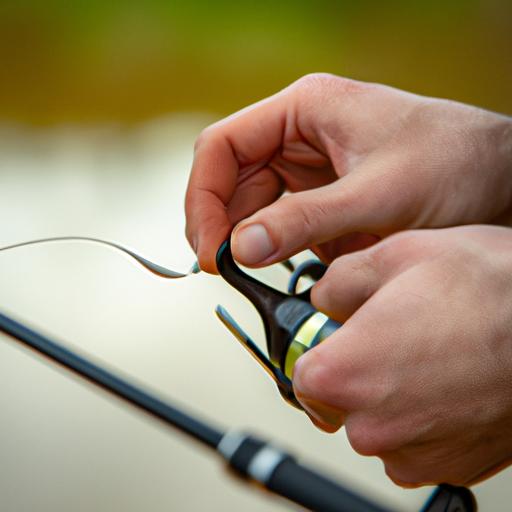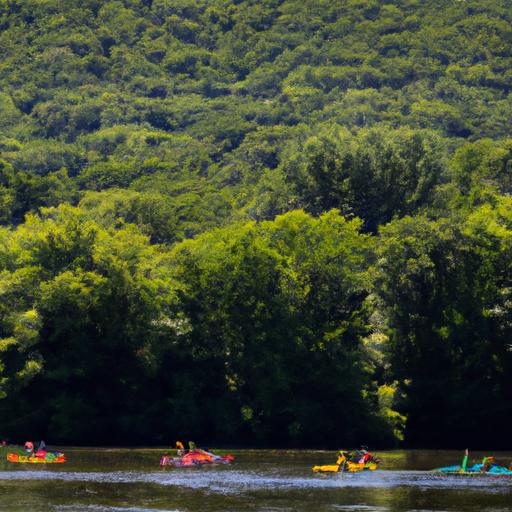Introduction
Are you ready to cast your fishing line and embark on an exciting angling adventure? Before you head out to your favorite fishing spot, it’s crucial to understand the importance of obtaining a fishing license and how much it will cost you. In this comprehensive guide, I’ll walk you through the significance of a fishing license and provide you with an overview of the associated expenses.
Importance of a Fishing License
A fishing license serves as more than just a legal requirement; it plays a vital role in preserving our aquatic ecosystems and ensuring sustainable fishing practices. By obtaining a fishing license, you contribute to the conservation and management of fish populations and their habitats. This helps maintain the delicate balance of nature, allowing future generations to enjoy the sport of fishing.
Overview of Fishing License Costs
Now, let’s delve into the nitty-gritty of fishing license costs. The price of a fishing license can vary based on several factors, including your location, residency status, and age. Different types of fishing licenses may also be available, each with its own set of fees. It’s essential to understand these variations to determine how much you can expect to pay for your fishing license.
As we proceed, we’ll explore these factors in more detail to help you gain a comprehensive understanding of how fishing license costs are determined. So, let’s dive in and unravel the mysteries of fishing license fees together!
**
Understanding Fishing Licenses
Definition and Purpose of a Fishing License
Let’s start by clarifying what exactly a fishing license entails. A fishing license is a legal permission granted by the relevant authorities that allows individuals to engage in recreational or commercial fishing activities within a specific jurisdiction. This license serves as proof that you have met the necessary requirements and regulations to fish legally in a particular area.
The primary purpose of a fishing license is to regulate fishing activities and promote responsible angling practices. By obtaining a fishing license, you demonstrate your commitment to preserving fish populations, protecting natural habitats, and supporting conservation efforts.
Types of Fishing Licenses Available
Now that we understand the essence of a fishing license, let’s explore the different types that may be available. Fishing licenses can vary depending on various factors, such as the type of waterbody (freshwater or saltwater) and the duration of the license (annual, daily, or seasonal).
-
Freshwater Fishing License: This type of license allows you to fish in lakes, rivers, ponds, and other freshwater bodies. It typically covers a specific geographic area or jurisdiction.
-
Saltwater Fishing License: If you’re more inclined towards saltwater fishing adventures, you’ll need a specific license to fish in coastal areas, estuaries, and the open ocean. This license may have different requirements and fees compared to freshwater licenses.
-
Recreational Fishing License: Geared towards individuals fishing for personal enjoyment, recreational fishing licenses are the most common type. They often come with different tiers or options based on the duration of the license, allowing you to choose what suits your needs best.
-
Commercial Fishing License: For those engaged in fishing for profit or commercial purposes, a separate commercial fishing license is required. This license involves additional regulations and may have higher costs due to the nature of the activity.
Differences in Fishing License Costs Based on Factors
Fishing license costs can vary based on several factors. Geographical location plays a significant role in determining the price you’ll pay for a fishing license. Different states or regions may have varying fee structures and pricing models, depending on local fishing policies and management strategies.
Moreover, fishing license costs often differ for residents and non-residents. Residents usually enjoy lower fees as a benefit of living in the area, while non-residents may have to pay higher prices when visiting for fishing purposes.
Lastly, age-based discounts or exemptions are sometimes available for certain groups, such as seniors, veterans, or youth. These discounts can significantly reduce the cost of a fishing license for eligible individuals.
Understanding these factors will help you navigate the world of fishing license costs more effectively. In the next section, we’ll explore how to research and find accurate information about fishing license fees.
**
Factors Affecting Fishing License Costs
When it comes to determining the cost of a fishing license, several factors come into play. Understanding these factors will help you gauge how much you can expect to pay for your fishing permit. Let’s take a closer look at the key elements that influence fishing license costs:
Location-based Variations in Fishing License Prices
The cost of a fishing license can vary significantly depending on your location. Each state or province has its own regulations and pricing structures for fishing licenses. Factors such as the abundance of fish species, conservation efforts, and management strategies can influence the price of a fishing license in a particular area. It’s important to research the specific pricing information for your desired fishing destination to ensure you obtain the correct license and budget accordingly.
Resident vs. Non-resident Fishing License Fees
Residency status plays a significant role in fishing license costs. Typically, residents of a particular state or province enjoy lower fishing license fees compared to non-residents. This distinction is in place to provide local residents with affordable access to fishing opportunities while generating revenue from out-of-state or international anglers. If you are planning a fishing trip in a different region, be prepared for potentially higher fees as a non-resident.
Age-based Fishing License Discounts
Many jurisdictions offer age-based discounts for fishing licenses, primarily targeting senior citizens and young anglers. Senior discounts are commonly available for individuals above a certain age threshold, while youth discounts aim to encourage young people to develop an interest in fishing. These discounts can significantly reduce the cost of obtaining a fishing license, making it more accessible for individuals in these age groups.
By considering these factors, you can better understand the variables that affect fishing license costs. This knowledge will enable you to plan your fishing adventures more effectively and ensure compliance with local regulations.
**
Researching Fishing License Costs
When it comes to determining the cost of a fishing license, conducting thorough research is essential. Let’s explore some effective methods for gathering accurate information on fishing license costs.
A. Online Resources for Fishing License Information
The internet is a treasure trove of valuable information, and researching fishing license costs is no exception. Many government websites provide comprehensive details about fishing regulations, including the associated fees. Visit your state or country’s official fishing and wildlife agency website to find the most up-to-date information on fishing license costs. These websites often feature user-friendly interfaces, allowing you to navigate through the various license options easily.
Additionally, online fishing communities and forums can provide valuable insights into fishing license costs. Engaging with fellow anglers can help you gain a better understanding of the expenses involved and any recent changes in pricing.
B. Contacting Local Fishing Authorities for Accurate Pricing
While online resources can provide a general idea of fishing license costs, it’s crucial to reach out to your local fishing authorities for the most accurate and up-to-date information. Fish and wildlife agencies or local government offices are typically responsible for issuing fishing licenses, and they can provide detailed information on the specific costs in your area.
By contacting these authorities directly, you can inquire about any special discounts, seasonal offers, or additional fees that may apply. They can also guide you through the process of obtaining a fishing license and provide any necessary paperwork.
C. Checking with Fishing Supply Stores for License Costs
Another valuable resource for determining fishing license costs is your local fishing supply store. These stores often have up-to-date information on fishing regulations and can provide you with accurate pricing details. They may even have brochures or pamphlets that outline the various fishing license options and associated fees.
Visiting a fishing supply store not only allows you to gather information but also gives you an opportunity to speak with experienced anglers and seek their advice on the best fishing license for your needs.
By utilizing these research methods, you can ensure that you have the most accurate and comprehensive information on fishing license costs in your area.
**




